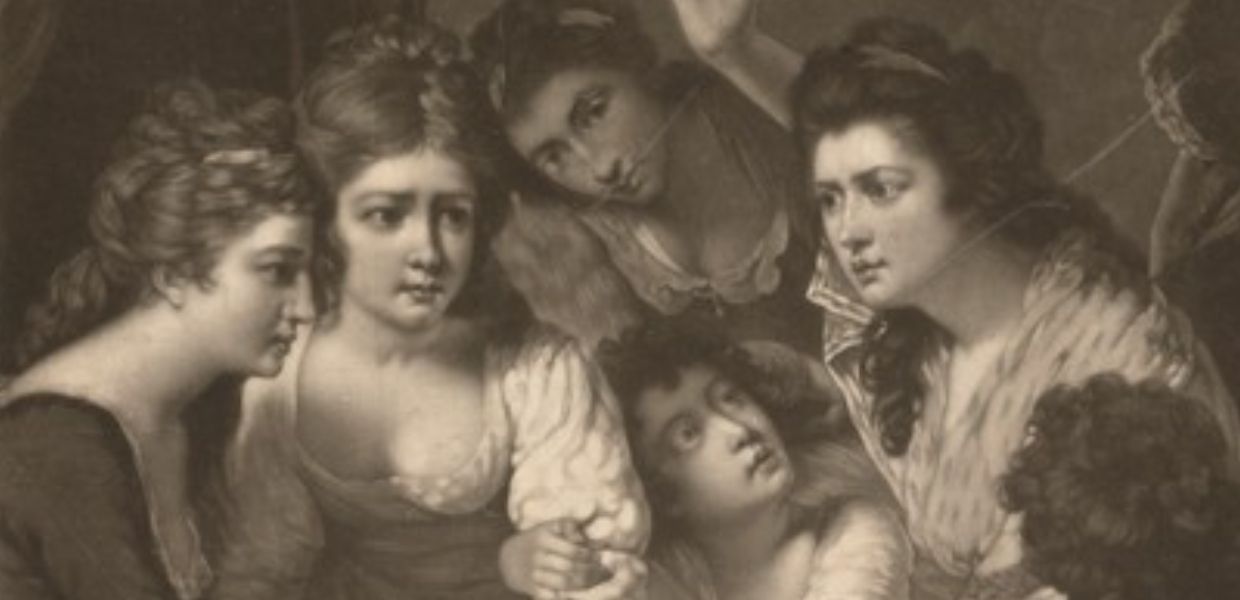New Task Force launches: Europeana as a ‘powerful platform for storytelling’
A new Task Force run by the Europeana Communicators community begins this month. It intends to research examples of interesting, engaging and effective storytelling from around the web and produce recommendations to further develop Europeana as a ‘powerful platform for storytelling’. Its chair, Beth Daley, tells us about it in the first post in our 'Strategy in motion' series.
The new Europeana Strategy 2020-2025 puts great emphasis on sharing best practice and developing digital tools that empower the digital transformation of Europe’s cultural heritage institutions. It talks about innovation and harnessing state-of-the-art tech, and it calls for Europeana to harness its full potential as ‘a powerful platform for storytelling’.
When I read the new strategy, that phrase ‘a powerful platform for storytelling’ stood out to me. What does it mean? How can we make it happen?
The number of stories we can tell with the culture available through Europeana is infinite - so how do we go about it? How do we turn digital files and metadata into stories that educate and inspire our audiences? What are the components of a powerful story?
And once you have your story, how do you present it in a way that captures imaginations and creates a memorable, meaningful experience? Digital advances mean we don’t simply have to imitate what’s possible in the physical world. What kind of new presentations and experiences does digital provide? Who is doing interesting things right now, and what can we learn from them?
I’m very excited indeed for the Task Force to begin to explore these questions.
A Task Force for a new era
Much has changed for all of us this year due to the COVID-19 pandemic. With business travel off the table for the time-being, we’re delighted to have been able to enlist everyone who responded to our call for Task Force members.
Members include cultural sector communications professionals, academic researchers, PhD students, teachers and tech professionals and bring a range of interests and expertise from archaeology to narratology. For some, this is their first contribution to Europeana Network Association activities, while others are continuing a long-standing relationship with Europeana by joining the Task Force.
Lisa Peter of The Shakespeare Birthplace Trust (UK) says, ‘If the recent lockdown has brought anything to light for me, it's the fact that cultural heritage profits immensely from being curated in the digital space, in a similar way to how we curate heritage in physical spaces (although different processes are needed). Those organisations who had already started their journey on the digital storytelling route fared better than others when it came to staying accessible and relevant to their audiences, offering quality content to support home education, and to keep people entertained (and also distracted) during a time of crisis. In my view, it is high time cultural heritage organisations moved "from stuff to stories".’
Newcomer to Europeana, Raul Gomez Hernandez says, ‘I think storytelling is the best way to communicate about cultural heritage. Creating digital cultural resources based on storytelling is essential to engage people and link them to the cultural heritage and cultural institutions. Cultural heritage is not only to be watched, but it is also a powerful tool for carrying messages in society about any topic. I think this is a perfect opportunity to help with that task.’
Europeana's Collections Engagement Manager, Douglas McCarthy, says, 'At Europeana, we are deeply interested in innovation around digital engagement with culture, so we're really looking forward to seeing what this Task Force delivers.'
The Task Force will meet (virtually) on a regular basis and updates on our progress will be available on Europeana Pro News and via the Europeana Communicators’ newsletter.


